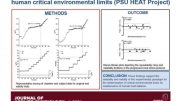Doctors claim that the UK government let down its health professionals during the COVID outbreak
According to an editorial that was published online today in The BMJ, the government’s claims that it was “led by the research” while formulating policies to combat the COVID-19 pandemic were in doubt. As a result, health and social care workers were frequently let down by the government.
According to an editorial piece authored by Kamran Abbasi, editor in chief of The BMJ, Martin McKee, and Kara Hanson, both of the London School of Hygiene and Tropical Medicine in London, there are several points that need to be addressed when evaluating how well the UK handled the pandemic.
The BMJ has commissioned a series of articles to look into how information was sometimes “misused, abused, and manipulated” by some parties and how it was used to define the UK’s response to the pandemic.
The first two of these studies, which were released today, cast doubt on the data used by the government to make choices about how COVID-19 affects kids and schools and spreads.
In the first study, University of Oxford professor Trisha Greenhalgh and colleagues examine how false theories regarding SARS-CoV-2 transmission emerged early in the pandemic and became entrenched, resulting in inappropriate policies and preventable fatalities.
The authors write: “Flawed droplet-but-not-airborne and situationally airborne narratives are at the heart of the UK’s limited effectiveness in preventing transmission of SARS-CoV-2.”
The report stated that “These narratives, and the false assurance with which they were communicated, produced ineffective public health measures, contributed to shocking numbers of deaths in care homes, exacerbated toxic discourse on masking, and justified withholding adequate protection from most health and care staff,” the report stated.
Inquiry is encouraged to “take into account not only those particular faulty actions but also the culture of hasty scientific conclusions and reluctance to grapple with doubt.”
In the second publication, Dr. Deepti Gurdasani of Queen Mary University of London and colleagues claim that the UK government relied on data that overstated the risks of vaccination and overestimated the seriousness of COVID-19 in children.
According to them, the government’s strategy “seems to have been based on three assumptions”: namely, that children played a small role in community spread, especially to vulnerable families; that schools were not sites of transmission; and that children were not damaged by infection.
However, none of these presumptions are accurate, and this was apparent when important choices were being made early on.
The public inquiry, according to their recommendations, “should explore why the UK is an international outlier in its approach to protecting children and making schools and communities safer.”
Abbasi and his co-authors claim in the editorial that the publications from The BMJ will contribute to the ongoing UK COVID-19 Inquiry, which is being led by Heather Hallett.
The investigation will record choices and look into their justifications, as well as compare local practices to those abroad and take grieving families’ experiences into account.
The editorial writers caution that it won’t be simple: “Finding the truth will be difficult given the government’s history of refusing FOIA requests, ministers’ refusals to appear before parliamentary committees, and [Boris] Johnson’s practice of avoiding questions made to him in parliament each week. This is a regime that dislikes being scrutinized. ”
They note that assessing how the decision-making process was informed and influenced would be another issue for the investigation.
“Politicians and their scientific advisors insisted that decision-making would be ‘driven by the science’ throughout the pandemic,” they claim. But evidence is socially created and subject to intense debate. It is vital to think about who’s science matters and why when formulating policy, because different sources and types of evidence are assigned varying weights.
According to the editorial, there were some achievements in the management of the pandemic, including the early stages of the vaccine program, how the NHS handled its introduction, and health care innovation.
They continue, saying: “The evidence that SARS-CoV-2 transmits through the air, in crowded and poorly ventilated settings, was obvious pretty early on. Nevertheless, errors were also made. Many policies continue to disregard this important reality.
Children have suffered because COVID has affected them or family members, as well as because of lost educational opportunities. At best, there is lukewarm support for protective measures such as vaccinations and better ventilation in schools. ”
They came to the conclusion that the UK’s response could have been better given the death toll there, which was close to 200,000.
They claim that there is little question that the UK’s reaction fell far short of its potential. While discussion persists regarding how best to assess the resilience of national health systems to shocks like pandemics, they write.
One message is consistent and unequivocal: scientists and health professionals on the front lines of the response, and therefore the public, were too frequently let down by politicians, according to the writers of each piece in The BMJ series.





